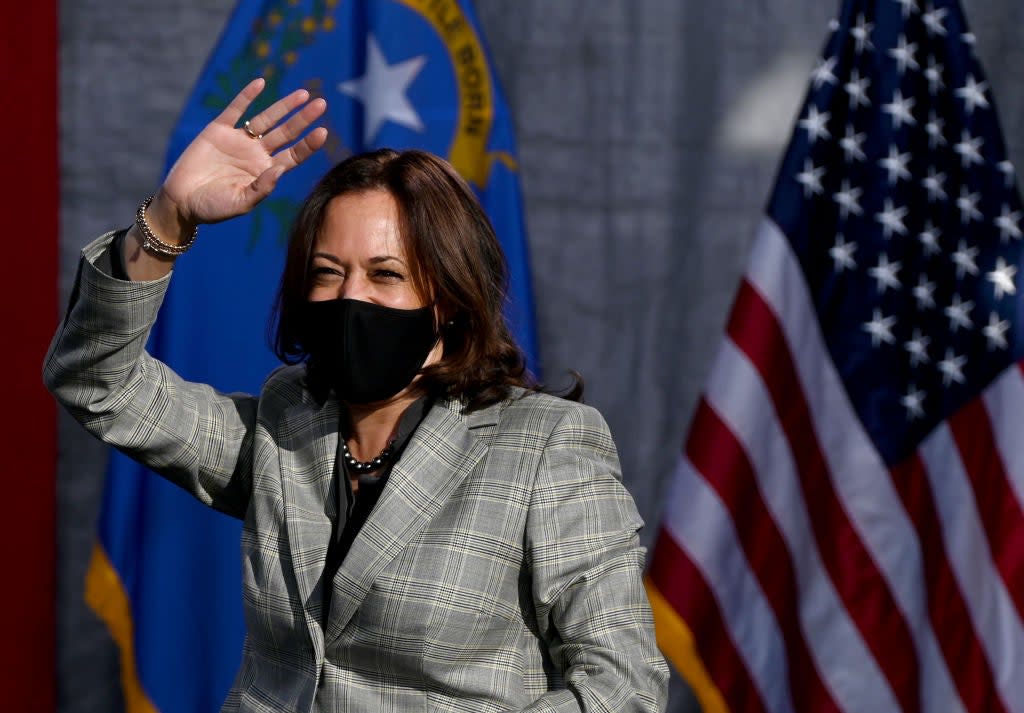I went to Kamala Harris’s high school. Here’s why that matters

Kamala Harris, a California-born US citizen, went to my high school, Westmount High, in Montreal, Canada. Or, more accurately, I went to hers, since she graduated before me, in the Class of ’81; I was Class of ’84. I did not know Senator Harris personally, but we do have mutual friends.
Now, she is in the running to be the next US vice president.
This evening, as I sit to watch Senator Harris take the stage for the vice-presidential debate with Republican opponent Mike Pence, I can’t help but be reminded of the political background she and I share.
This is not the first make-or-break November election that Harris has gone through.
In November of 1976 — the year she took up residence in Montreal with her mother and sister — voting-age Montrealers, along with the rest of the citizens of the entire province of Quebec, went to the polls in one of the most definitive elections in our country’s history. The victorious party, Le Parti Québécois, held a nationalistic vision of the future that included Quebec’s separation from Canada. The election results ushered in an era of societal transformation that saw the headiest period in Quebec’s centuries-long language conflict between the French-speaking majority and English-speaking minority. “Bill 101” was passed the following year, making French the official language of the province, raising concerns among English speakers who felt shut out by some of its legal stipulations. Montreal, as the largest bilingual and multicultural city, was at the beating heart of this debate.
I see parallels between the backdrop to the 2020 US presidential election and the 1976 Quebec general election. Now, like then, there is a stark divide in the electorate. Nationalist sentiment is at a record high, as polls and studies conducted at both times show. The future feels especially uncertain. And because of that, people are looking to leave. Google reported a dramatic spike in searches by Americans for “How to move to Canada” the day after last week’s presidential debate.
I remember that in the weeks following the ‘76 election, my best friend and I made a game of counting the new “For Sale” signs we passed on our morning walk to school in our predominantly anglophone suburb. The neighboring city of Toronto, not the States, was the most common destination back then for those heeding the message “101 or the 401,” in reference to the highway that leads there.
Senator Harris has not spoken about her years in Montreal and at Westmount High. But what politician focused on the matters of the day segues into reminiscing about their school days? In her memoir, The Truths We Hold: An American Journey, she amusingly recounts, “I used to joke that I felt like a duck, because all day long at our new school I’d be saying, ‘Quoi? Quoi? Quoi?’” (“What? What? What?”) That was in her elementary school. Her mother wanted her to learn French and enrolled her in École Notre-Dame-des-Neiges. Had she arrived a year later, it would not have been a choice but a requirement under Law 101. At the same time, mere blocks over, I was just starting as a pupil at St Kevin’s Elementary (now defunct), where instruction was in English and we were also taught French. At that point, both my mother and Harris’s mother were health science professionals working at the Montreal Jewish General Hospital. And our elementary schools were nearby in the same neighborhood called Côte-des-Neiges, Montreal’s Ellis Island, an immigrant corridor through which generations of newcomers have passed, from Polish and Russian Jews at the beginning of the 20th century to Syrian refugees at the start of the 21st.
Harris’s family moved to the comfortable district where Westmount High is located, for which it is named, and mine to happy suburbia. Years later, we both ended up at Westmount, a school at the crossroads of Montreal’s diverse cultures, classes, and even languages. Founded almost 150 years ago, it has braced many a tide of political change: its graduates include one conservative Leader of the Opposition, one former First Lady of Canada, and the singer-songwriter Leonard Cohen.
Along its halls, we students mixed with peers from different sections of the city. Everyone pretty much got along. In any high school, you’ve got cliques. I hung out with the kids into alternative music; Harris was drawn to the performing arts crowd. It was simple. You didn’t overthink it.
But outside school, Montrealers were struggling to understand each other across the linguistic median. As Black English speakers, Kamala Harris and I were put in a position to have to speak extra loud and extra clear to be heard by either side. She found her voice early. One time, she writes in her memoir, she and sister Maya held a demonstration in front of their residence. It had nothing to do with language or race, though: it was to demand that the kids be allowed to play soccer on the lawn.
Many Montrealers of all backgrounds ended up throwing in the towel on the language tussle and moving away. Senator Harris moved back to her home, the US, after graduation, and I left my home, Canada, for hers: we both went off to universities in the States. I returned and lived in Montreal for many more years. While I can’t say how much of this interval informed Senator Harris’ political brain — from the standpoint of international diplomacy, it would be bad form to bring up the neighbor’s family feud in ordinary conversation — as I listen to her debate tonight, I will certainly wonder.
Nicholas Boston, PhD, is Associate Professor of Media Studies at the City University of New York, Lehman College

 Yahoo News
Yahoo News 
